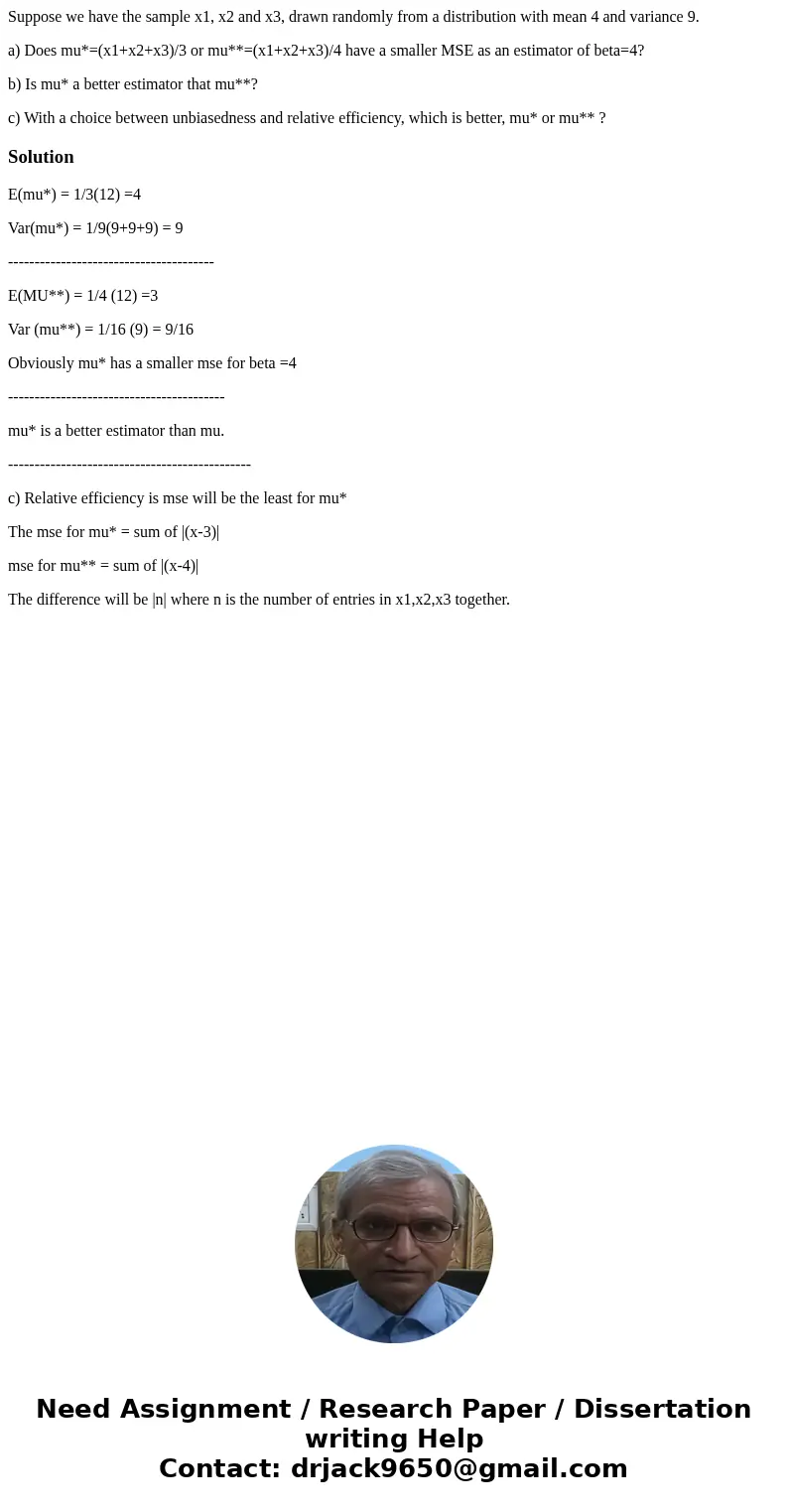Suppose we have the sample x1 x2 and x3 drawn randomly from
Suppose we have the sample x1, x2 and x3, drawn randomly from a distribution with mean 4 and variance 9.
a) Does mu*=(x1+x2+x3)/3 or mu**=(x1+x2+x3)/4 have a smaller MSE as an estimator of beta=4?
b) Is mu* a better estimator that mu**?
c) With a choice between unbiasedness and relative efficiency, which is better, mu* or mu** ?
Solution
E(mu*) = 1/3(12) =4
Var(mu*) = 1/9(9+9+9) = 9
---------------------------------------
E(MU**) = 1/4 (12) =3
Var (mu**) = 1/16 (9) = 9/16
Obviously mu* has a smaller mse for beta =4
-----------------------------------------
mu* is a better estimator than mu.
----------------------------------------------
c) Relative efficiency is mse will be the least for mu*
The mse for mu* = sum of |(x-3)|
mse for mu** = sum of |(x-4)|
The difference will be |n| where n is the number of entries in x1,x2,x3 together.

 Homework Sourse
Homework Sourse